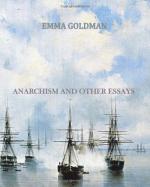|
This section contains 12,615 words (approx. 43 pages at 300 words per page) |

|
SOURCE: “Three Sources of Anarchism,” in Classical Anarchism: The Political Thought of Godwin, Proudhon, Bakunin, and Kropotkin, Clarendon Press, 1991, pp. 6-38.
In the following essay, Crowder illuminates three major sources of anarchist thought: the concept of the moral and rational perfectibility of man, Jean-Jacques Rousseau's critique of civilization, and the optimism of Enlightenment science.
The history of Western political thought contains many anti-authoritarian currents. The vision of a golden age without government is a favourite theme from Ovid to Rousseau, and those writers who have advocated release from the authority of Church and State are too numerous to mention.1 Only in the wake of the Enlightenment and the French Revolution, however, does anarchism (along with the other great modern ideologies: liberalism, socialism, conservatism) emerge as a systematic political theory. As David Miller puts it, for inchoate defiance to crystallize into a reasoned challenge to the existing order and...
|
This section contains 12,615 words (approx. 43 pages at 300 words per page) |

|


